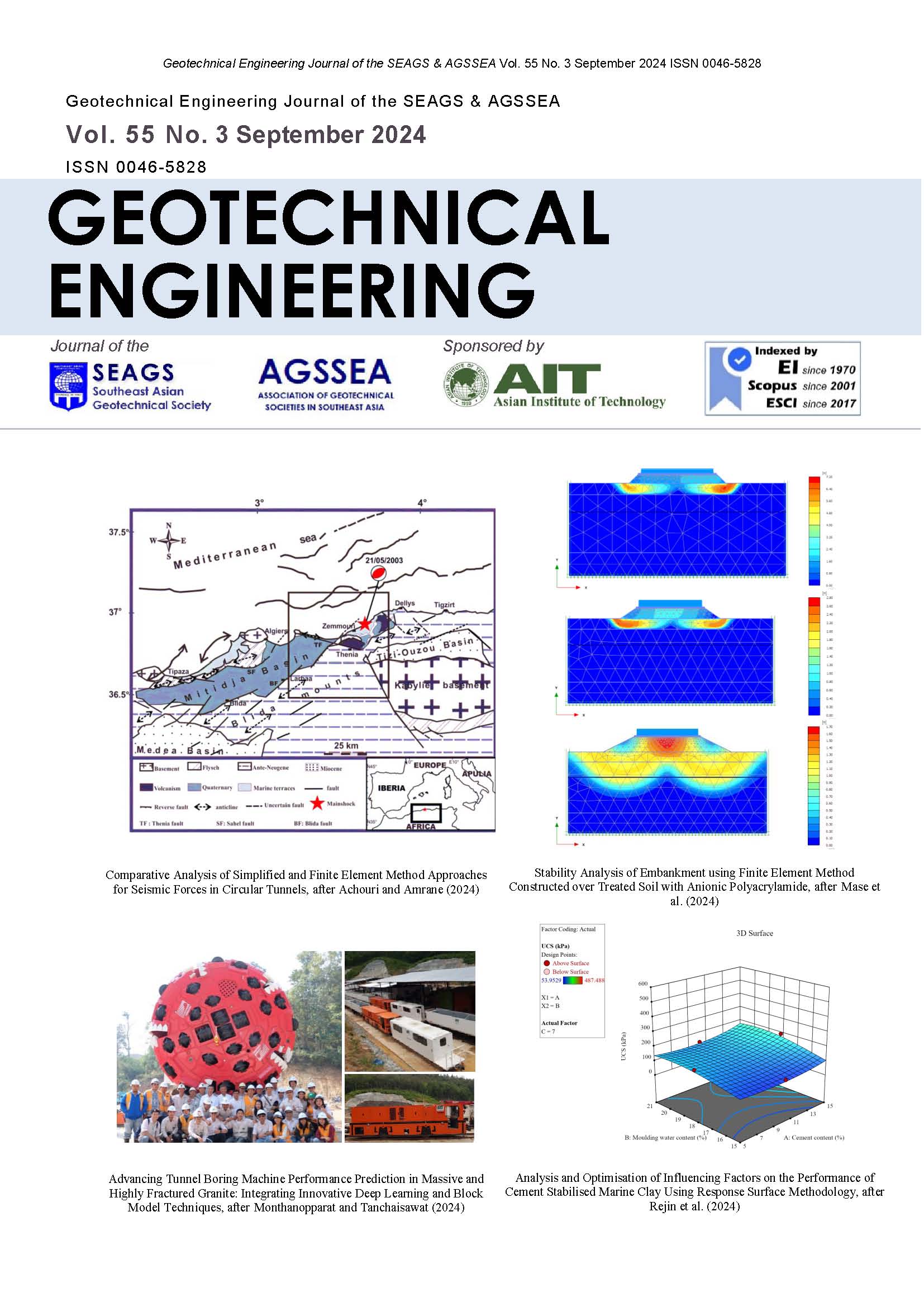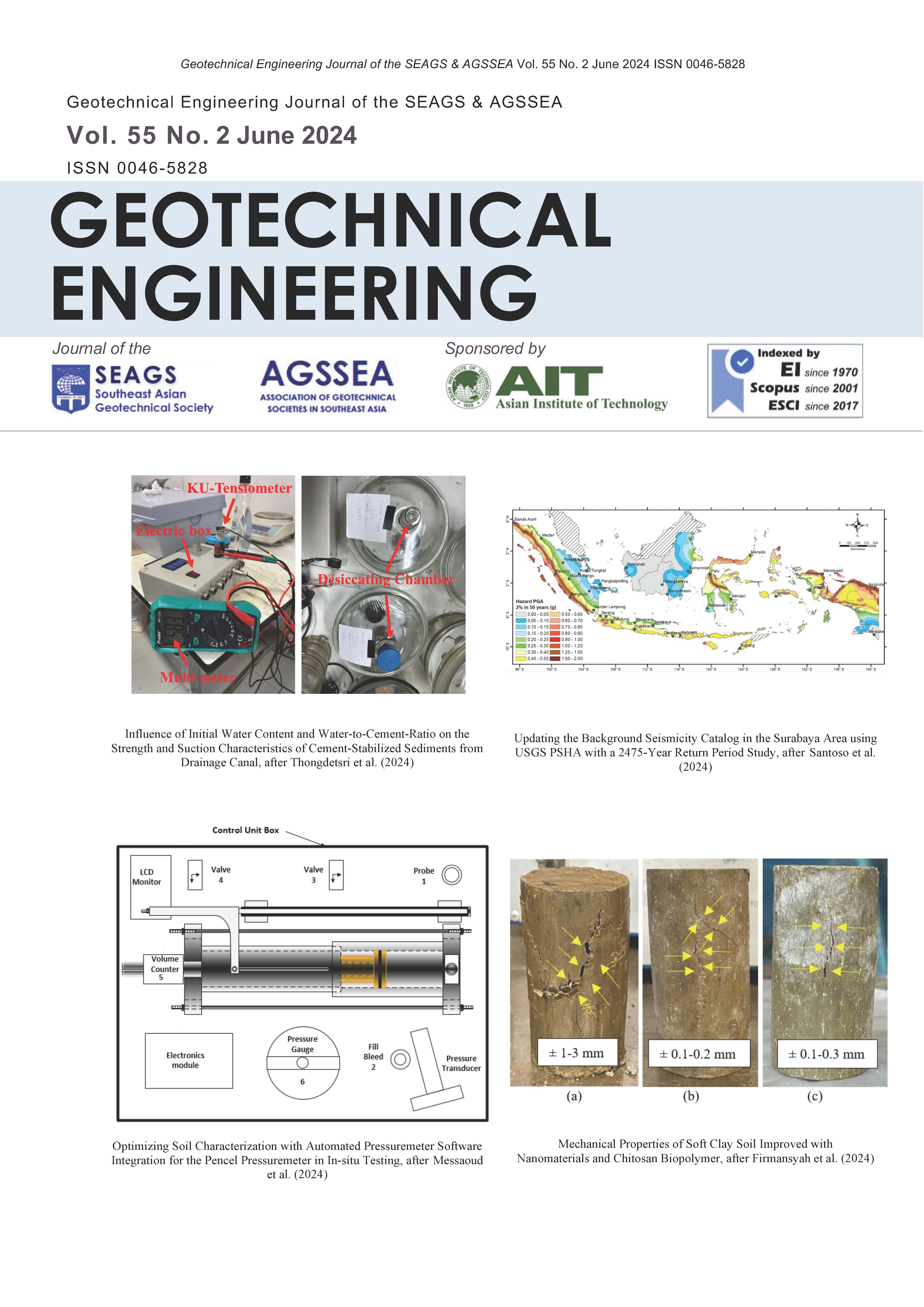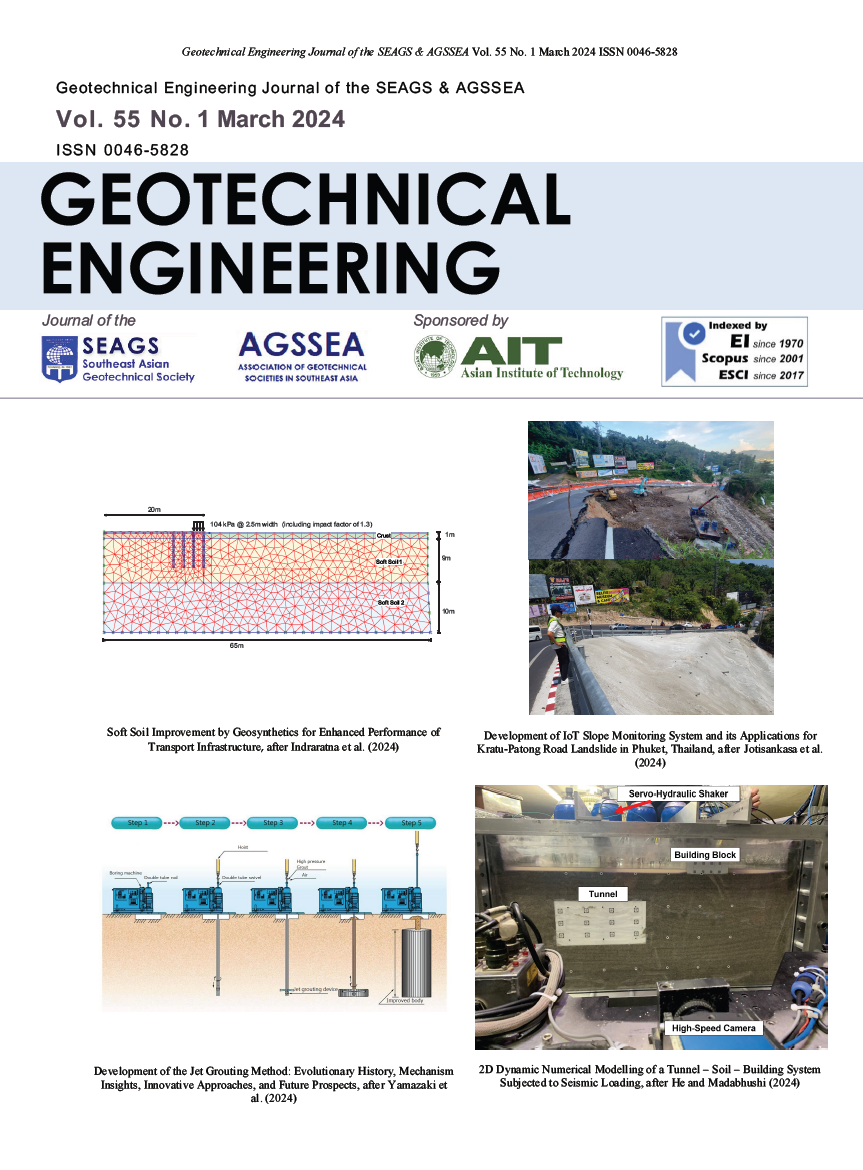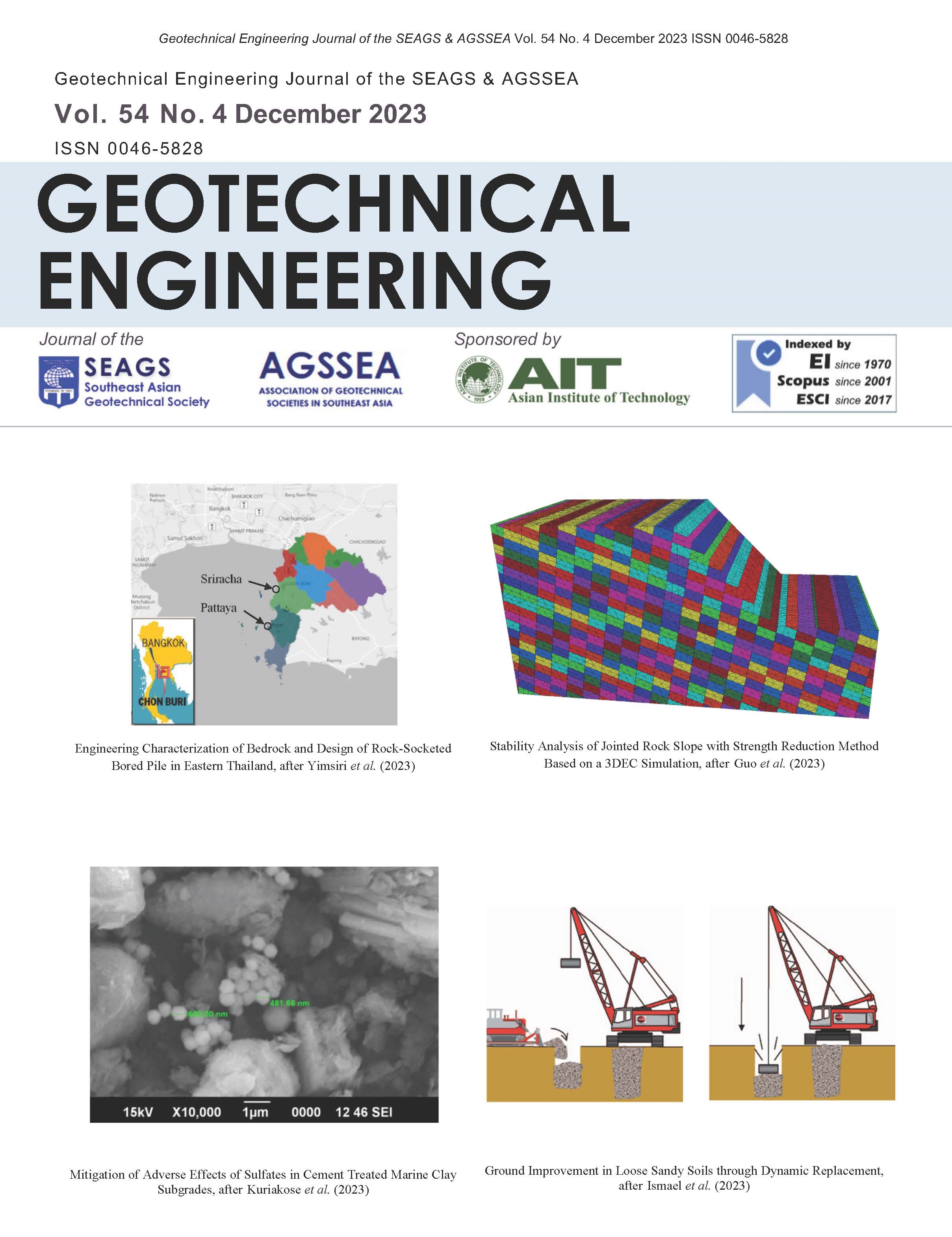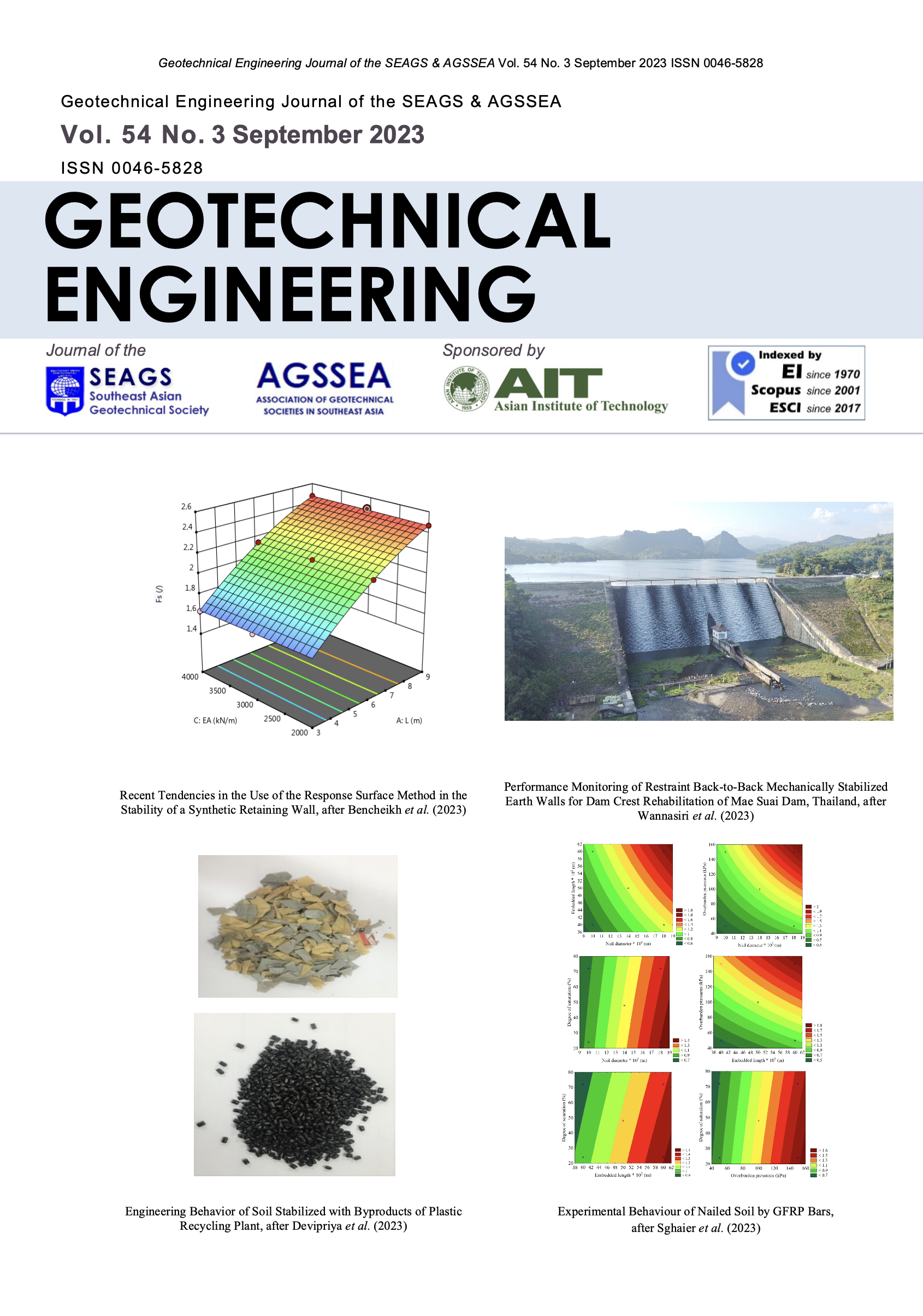Geotechnical Engineering Journal of the SEAGS & AGSSEA ISSN 0046-5828
Vol. 54 No. 1 March 2023
The Application of Rice Husk Ash and Lime as a Stabilizer for Constriction Purposes
Abdullah All Noman, M. Raton, and Koshnur Rahman
ABSTRACT: The objective of this study is to improve the engineering properties, strength, and CBR value of sandy, fine-grained soil. All types of earthen structures rest directly on the soil. The CBR value refers to the strength of the subgrade soil, which greatly affects the durability and cost of pavement. By properly treating the subgrade soil, its properties and strength can be improved to protect it from post-construction damage. Stabilization of soil is an effective technique for improving soil properties and the performance of the pavement system. With the same intention, an attempt was made to modify the engineering properties of soils collected from Mirpur-12, Dhaka, Bangladesh, by using rice husk ash and lime. The soil samples were mixed with rice husk ash in varying proportions of 4%, 8%, 12%, 16%, 20%, 24%, and 28% by weight, as well as 2%, 4%, 6%, 8%, 10%, 12%, 14%, and 16% lime content. Increases in stabilizer contents directly increase liquid and plastic limits. However, as the proportion of rice husk ash and lime increases, the plasticity index gradually decreases. The reduction in dry density was from 1.61 gm/cc to 1.38 gm/cc, and the increase in optimum moisture content was from 16% to 20.9% for the addition of 28% rice husk ash with the soils. In addition, the same reduction and increase were also observed for the lime stabilizer. Based on both the California bearing ratio and the unconfined compressive strength test, it is recommended to use 8% lime and 20% rice husk ash to stabilize this soil for sub-base materials.
KEYWORDS: Stabilizer, CBR, Unconfined compressive strength, Lime, Rice husk ash.









